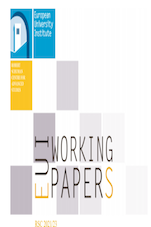By Mathias Delori

From 1945 to 1949, France implemented a security policy towards Germany based on annexing border territories, dismantling German industry and impeding the reconstitution of German political institutions. On 9 May 1950, however, French Foreign minister Robert Schuman proposed that both countries create a ‘high authority’ responsible for the production of coal and steal. This rapprochement policy has never since been called into question. In less than six years (1945-1950), the old foe had become a new friend. This paper investigates this spectacular policy change using the tools of ‘pragmatist’ sociology and philosophy. The main idea I borrow from pragmatist philosophy and sociology is that we could reach a more comprehensive understanding of foreign policy-making by putting into question what Dewey calls ‘dualism’ between ‘idea and action’: in everyday life we do not wait until our ‘mind’ has identified the best solution to our ‘puzzles’ before engaging in action. My point is that French policy makers did not have a clear understanding of the ‘German problem’ either. They tried several policy instruments at the same time, abandoned those which failed, developed further the successful ones, and learned through action.
Published:
EUI Max Weber Working Paper 2009, 42, 2009
Online available:
cadmus.eui.eu